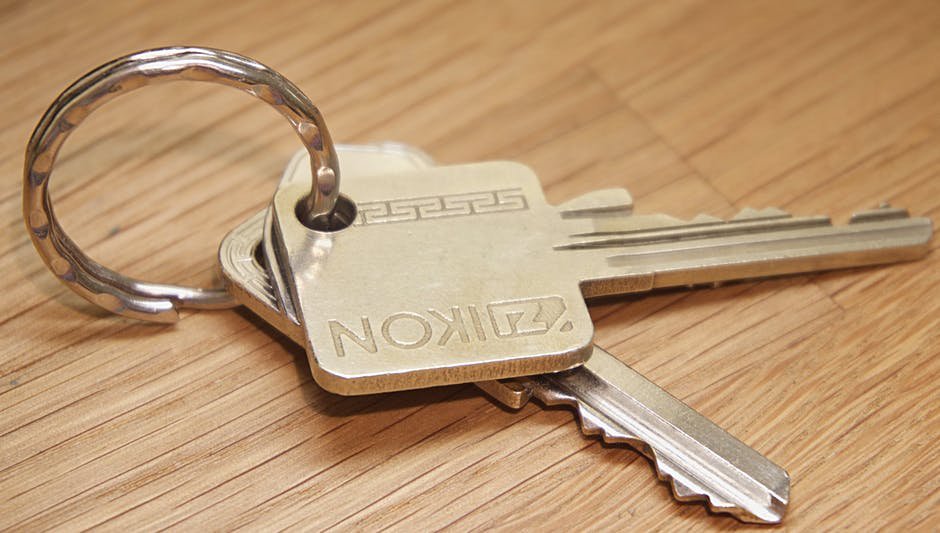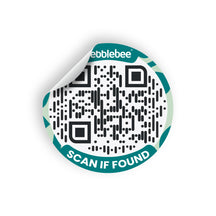You're running late to work or an appointment, and you rush out the door and go to lock it, only to realize you can't find your keys. You could have sworn you left them on the entryway table. Or perhaps it was the kitchen counter?
After several minutes of frantic searching, you're frustrated, anxious, and stressed. Eventually, you find the lost keys under a stack of mail, but you're late now.
We've all been there at some point. Hopefully, the keys will turn up. However, over 20 million people lose their house or car keys per year.
There's a better way, and we're here to tell you the secret of finding lost keys every time.
Check the Most Common Spots
When people lose their keys, they usually turn up in a few of the same places where we don't think to look immediately.
For instance, if you came home in a rush or had your hands full, the keys might still be in your door lock. It's possible you simply forgot to take the keys out afterward.
Another place they often turn up is in your pockets. Check your jeans, your purse, and your jacket. Be sure to look in yesterday's clothes too.
If you keep your keys on a hook, look below it on the floor. Sometimes keys drop or even fall in shoes.
Kitchen counters, dining room tables, and bathrooms are also spots lost keys turn up. When you're in a hurry after getting home, it's easy to forget where you set them down.
Keys can also disappear under jackets or piles of mail. Avoid tossing all your clutter in one spot, as it's a recipe for losing keys and other important items.
Don't Recheck the Same Places
It happens to all of us. You thought you placed the keys back on the hook. Maybe you can even envision hanging them there.
However, if you've already looked in a place and the keys didn't turn up, don't expect them to magically appear the second time. Don't waste time rechecking the same locations, even if you tell yourself maybe you didn't check thoroughly enough.
Once you've checked the entire perimeter around/in an area, move on to the next location.
What you should do is look around the place you usually store them. Sometimes keys "drift" to the side, the floor, or land underneath something. In most cases, they drift less than two feet away from that spot.
If you usually place them on the kitchen table, be sure they didn't get knocked down onto the floor or lost underneath something.
Retrace Your Steps
Some of the oldest advice when you lose something is to retrace your steps. So become your own Sherlock Holmes and replay the last time you saw them. What did you do, and where did you go?
Imagine the last time you remember seeing the keys. If you had them when you drove home, start by looking in the car. Then follow the path from your driveway or garage to the front door.
If you needed them to unlock the front door, be sure they're not still in the lock. Enter your house, and check each spot where you might have tossed them. Maybe you set the groceries down in the kitchen, and your keys are underneath one of the bags.
Retracting your steps is one of the most efficient ways to find those lost keys.
Ask Others
If you live with a partner or roommate, ask them if they've seen your keys. Sometimes they'll remember the spot they last saw them. In some cases, your roommate might even have moved your keys someplace safe but neglected to tell you where.
It always pays to ask the others in the house. It's also one of the quickest ways to locate the keys.
How to Avoid Losing Your Keys
If you often lose your keys, it's time to take action. Designate a special spot where you'll always place them no matter what.
For some people, it's a small hook by the front door. Others have a key tray or bowl on the entryway table. Be sure to tell your spouse or roommate about the spot, so if they find your keys somewhere else, they'll know where to place them.
It takes anywhere from 18 to 254 days to learn a new habit. And while that might sound like a long time, continually putting your keys in the same spot every day is an easy habit to form.
So, what about losing your keys while you're out somewhere? Maybe you placed them in your jacket pocket, and they fell out, or someone stole them.
Key tracking devices can help you retrieve them. You can learn more about how a Bluetooth key tracker works in our recent blog post.
Our Pebblebee tracker works via Bluetooth, connecting to your smartphone. It attaches to your keychain, allowing you to effortlessly find your keys in your house or if you happen to lose them outside the home.
All you have to do is open the app and signal to the tracker that you need to find your keys. The key tracker device plays a loud melody so you can find them. It can also help you track them down if you lost them at work, in the store, etc.
Always Find Your Lost Keys
Misplacing your keys is an inevitable part of life, but with these tips, you'll never have to worry about lost keys for long.
Ready to try our tracker for yourself? Our Pebblebee clip is the perfect size and shape to hang around your keychain. You'll never have to worry about losing your keys again.
Pick one up for yourself today.






